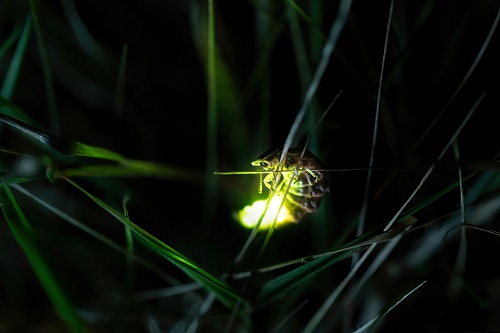
One pastime that I believe is common to every child who grew up in Dutchtown is catching lightning bugs. I’m almost 62 years old, and a glimpse of lightning bugs still takes me back to my childhood. As a long summer day would draw to a close, the last possible thing you could do outside would be to catch lightning bugs. Sometimes we would just run around catching them and releasing them. But other times, we would stick a few sprigs of grass in a jar and put a few of them in the jar. I can clearly remember sitting a jar of lightning bugs on the window sill and watching them as I faded off to sleep.
Something I did not know in those days was a lightning bug could live over two years, but almost all of that time was spent in the larval stage. The larvae have jaws that release toxins into their prey, allowing them to overpower snails, slugs, worms, and other ground-dwelling prey. They only live for a few weeks in the adult stage, where we usually see them. During this time, they will emit their flashes of light. Mostly what we see flying around are males trying to attract a mate while the females are typically waiting and watching from trees or grasses, responding with flashes of their own. After they mate, the female will lay her eggs in moist soil, under mulch or leaf litter.
You might think that all that flashing would show predators where they are, but lightning bugs have a defense. They taste terrible. When disturbed, they have reflex bleeding. Their blood contains steroid compounds known as lucibufagins that are repulsive to predators.
I have read that lightning bugs are on the decline and no one completely understands why. We do know that when their habitat is destroyed through development, they do not relocate. They are just lost. Pesticides and light pollution also take a toll. I don’t doubt the experts, but the anecdotal evidence from my front yard suggests they will be around for a while yet. I sure hope so.
Fireflies are tiny messengers that whisper in darkness: Don’t lose hope because magic does exist.